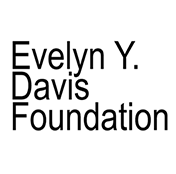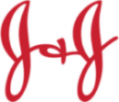After Phoebe Gavin was laid off in 2015, she was unemployed for four months, accruing about $15,000 in credit card debt. After she regained employment, she promised she would never be “caught flat-footed again.” She shared advice with Widening the Pipeline fellows on how to develop the mindset, habits and strategies that can help “layoff-proof” a career. [Transcript | Video]
4 takeaways:
➀ Be prepared to be laid off.
“Layoff proofing is like waterproofing,” Gavin said. It’s not possible to entirely prevent the possibility of being laid off. Instead, consider ways to build resiliency into a career path so layoffs are bearable. “You waterproof your boots so that they don’t get damaged when it rains and you layoff proof your career so your career doesn’t get damaged when you get laid off,” Gavin said. Increasing control over a career can give it stability even in the face of an unexpected dismissal.
Being laid off is an indication of the health of a particular industry—not a measure of individual performance. “It has nothing to do with your value, it has nothing to do with how good you were at the job,” Gavin said. “It has to do with capitalism doing capitalism.” Maintaining a consistent sense of self-worth is crucial to continue looking for job opportunities after a layoff. Building resilience and keeping options available also allows people to leave jobs that aren’t working for them, even when they don’t feel threatened by looming layoffs. “Building professional resilience is not just about dealing with difficult economic moments where layoffs are possible or imminent or have happened,” Gavin said. “It’s also about giving you control over your career, having it be more stable.”
➁ Networking is scary, but it’s important.
“There are two job markets,” Gavin said. One is the public job market anyone can apply for, and the other “is the shadow job market that is driven by reputation and relationships.” Networking can be nerve-wracking, but it brings opportunities to enter the “shadow job market.” Gavin said for networking, practice makes perfect. Breaking the task of networking into manageable pieces and remembering successful networking encounters are strategies to ease nerves.
Remember—others want to get something out of networking, too. “You need to be just as curious about them as you want them to be about you,” Gavin said. “You need to put in just as much effort that you want them to put into you.” Respect people’s time when discussing careers with them. In the same vein, if networking with people you’ve already met, you most likely will genuinely want to hear about their lives, and they’ll want to hear about yours.
➂ Mentorship matters—seriously.
Gavin says that following a stint in the military, years working for a non-profit and full-time blogging, she “slipped and fell and rolled down a hill into journalism.” But the transition was successful because Gavin was intentional about it.
“One thing that I’d done over the course of my entire career is lots and lots of mentorship, sponsorship and coaching. And again, that goes back to that beginning part where I had a very difficult transition to civilian life.” Gavin said the key is finding a mentor who can connect you to the kinds of resources, mindsets and habits that pave the way to success.
➃ Build up your career infrastructure.
Gavin said people “should always have an 80% resume” they can polish and adapt to a specific job posting in about 30 minutes. Responding to recruiters in a timely manner increases the likelihood of landing a job. “When they reach out to you, that is when they are the most likely to do something with your application,” Gavin said. “So it shouldn’t take two, three days, an entire weekend for you to turn over a resume.”
Pay attention to LinkedIn, too. Adding key terms to a LinkedIn profile will make it more discoverable to recruiters when they use the search engine. Recruiters can then contact you about job opportunities, instead of you needing to reach out to them. Prepare a solid three-to-five-sentence elevator pitch to use at the beginning of interviews. Connecting specific interview questions to your elevator pitch ensures recruiters will remember your key details.
The Widening the Pipeline Fellowship is sponsored by the Evelyn Y. Davis Foundation, Bayer, J&J and Lenovo. NPF is solely responsible for the content.











